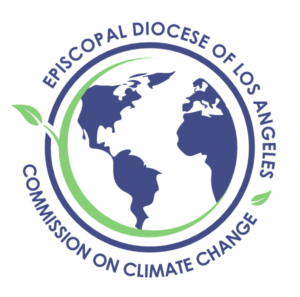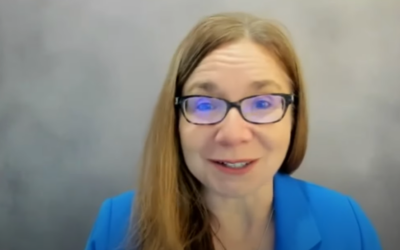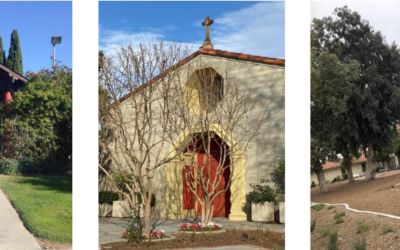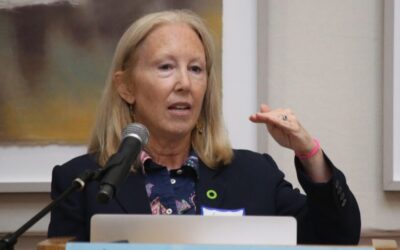
Resources & Response to the Wildfires
The following resources have been compiled to support all those impacted by the present crisis
Bishop’s Commission on Climate Change
Responding to the urgent global and local needs of the current environmental crisis, the Bishop’s Commission on Climate Change, comprising more than 20 members appointed from across the diocese, is actively engaged in these priorities:
- Advocating for a better response in the U.S. to climate change priorities
- Educating diocesan congregations, schools, institutions, and individuals in addressing climate change
- Engaging General Convention legislation calling dioceses, congregations, and individuals to action
- Increasing preparedness for natural disasters and responsiveness when they occur
In addition, the Commission is bringing attention to intersections of food insecurity and racial justice; tracking of federal, statewide, regional and local legislation; and development of an anthology of online resources. The role of youth and young adults, together with local schools and seminaries is also key.
Impetus for launching the Commission in March 2022 includes Diocesan Convention’s 2021 Margaret Parker Lecture given by Mary Nichols, parishioner of St. James’, Los Angeles, and a former longtime chair of the California Air Resources Board, who spoke just after her return from the United Nations COP26 meeting in Glasgow, Scotland. View her lecture here.
The Bishop’s Commission on Climate Change offered its first annual Climate Change Summit at St. Paul’s Commons in Echo Park on Saturday, September 16th. The program featured presentations from Dr. Lucy Jones, Kate Varley, Steve Slaten, Rev. Daniel Tamm, and Lisa Markus. Read a full report on the summit here.
Click below for further resources and to view initiatives that require urgent action:
Commission Chair
The Rev. Canon Melissa McCarthy | Contact: melissamccarthy@ladiocese.org
Commission Participants
In addition to Bishop John Harvey Taylor and the Rev. Canon Melissa McCarthy, commission participants include:
- Canon Robert Williams, diocesan staff liaison and canon for common life; parishioner at St. James in the City, Los Angeles
- Full List of Commission Members can be viewed here.
The commission meets virtually each month.
About the Commission on Climate Change’s Work
During the Episcopal Church’s 80th General Convention, the House of Bishop’s named the climate crisis an urgent concern that affects all issues of social justice. In a statement issued on the final day of the gathering, they proclaimed:
“As people of faith, we are not without hope, but the sustainability of God’s creation demands our action. Confronting climate change and environmental degradation has never been more urgent. As members of The Episcopal Church, we are committed in baptism to resist evil, seek God’s will, treat all people with dignity, and strive for justice and peace. Living into these promises, we must face the climate crisis for the sake of love of God and neighbor”
As part of this vital work, The Bishop’s Commission on Climate Change is committed to keeping congregations and communities of the Diocese of Los Angeles informed and inspired as we collaboratively respond to the developing climate crisis. The commission meets regularly to discuss developments, analyze priorities, and mobilize collective action.
Resource Guide
The Commission on Climate Change has compiled resources in key areas of interest and insight that will support parishes in the work of implementing sustainability and resiliency measures while connecting to the spiritual grounding that guides us in the work of creation care, Earth healing, and climate advocacy. Select a category to learn more about how you and your congregation can be involved.
To schedule an educational program, Climate Change 101: Hope is a Renewable Resource, for your congregation, click here.
For a general list of Climate Change resources including organization links, articles, books, practical and spiritual resources, click here.
Green Tips & Creation Care Commentary
Use in your church bulletin to nourish ecological faith in your congregation & community
Sustainable Travel Tips
Travel has a huge impact on the environment. Here are some sustainable travel tips gathered from Yale University to help promote green travel:
- Pack as light as possible.
- Fly non-stop. Layovers mean at least one extra takeoff and landing, which is responsible for half of the carbon emissions during a single flight.
- Bring a reusable water bottle. Airport and train terminals have water stations for refilling.
- Take the train for trips to reasonably close destinations. Train travel generally emits much less carbon than planes or cars. (How much CO2 your train journey emits depends on whether the train is fueled by diesel or electricity, and whether the electricity is powered by fossil fuels or renewables.)
- Choose e-tickets instead of printing a boarding pass.
- If renting a car, consider an electric vehicle instead of a gas-powered car to reduce your carbon footprint.
- When you reach your destination, walk, bike, or use public transportation and trains whenever possible.
- When you enter a hotel room, unplug electronics not in use (lamps, mini-fridge, coffee maker, hair dryer, and TV). Appliances drain energy even when they’re not on.
- Hang the “Do Not Disturb” sign on your door or call housekeeping and tell them you won’t need their services during your stay. This will prevent the hotel from changing your sheets and towels, saving water and electricity.
- Take unfinished hotel toiletries with you because they are typically thrown away. The plastic bottles are the perfect travel size and can be reused.
Climate Change Updates from the Episcopal News
Claim hope, action amid ‘weird weather,’ scientist Katharine Hayhoe tells Bishop’s Commission on Climate Change webinar
[The Episcopal News] – One of the most effective ways people of faith can help combat climate change is to start talking about it, in ways that connect people’s personal experiences with hope and action, atmospheric scientist Katharine Hayhoe told a Nov. 20 webinar...
Episcopal Diocese, Dr. Lucy Jones Center apply for grant to fund joint Riverside resiliency project
[The Episcopal News – December 3, 2024] The Episcopal Diocese of Los Angeles, in collaboration with the Dr. Lucy Jones Center for Science and Society, has submitted a grant proposal to fund the creation of a series of "resiliency hubs," the basis of an eventual...
Kate Varley Alonso joins Lester Mackenzie as COP29 Episcopal Church delegates from L.A. diocese
Earlier this year, former Episcopal Church Presiding Bishop Michael Curry named 17 delegates to represent the Episcopal Church at the 29th session of the Conference of Parties of the U.N Framework Convention on Climate Change, also known as COP29. The church is...



